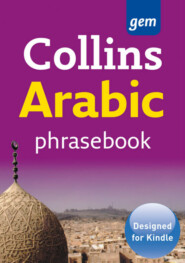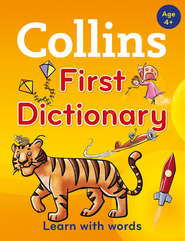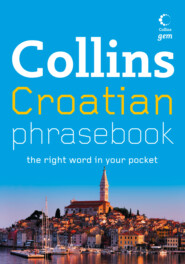По всем вопросам обращайтесь на: info@litportal.ru
(©) 2003-2024.
✖
Scots Dictionary: The perfect wee guide to the Scots language
Настройки чтения
Размер шрифта
Высота строк
Поля
fae (fay) or frae (fray) Fae means from: some guy fae Tollcross; Where’d he get that fae?
The variant form is given an entry of its own, referring the reader to the main entry, unless the variant would come within five entries of the headword. Hence, there is an entry for frae but not one for cockieleekie:
frae (fray) A variant of fae.
Pronunciations are given for words which might be difficult or confusing for the non-Scots speaker. They are shown either by respelling, with the stressed syllable in bold, or by rhyming them with a word with a similar pronunciation.
ca’ or caa (caw) …
caber (rhymes with labour) …
ceilidh (kale-ee) …
There are a number of regional variations in pronunciation in Scotland: in general the form shown is a West Central Scotland one, that being the most widely spoken dialect, but where a word is most common in a particular area, the pronunciation appropriate to that region is given.
Where more than one way of pronouncing a word is in widespread use, all these pronunciations are shown.
dicht (diCHt or dite) …
In respellings, each syllable has been shown in a form likely to be clear to all speakers of British English. However, the following points should be noted:
g always represents the hard “g” in gun, never the soft “g” in gin
ch represents the “ch” in cheese or church
CH represents the guttural sound represented by the “ch” in the Scots loch and in the German composer Bach
th represents the unvoiced “th” in thin, three, or bath
TH represents the voiced “th” in this, father, or bathe
iy represents a vowel sound used in Scots but not in English. It is the vowel in the normal Scottish pronunciation of bite, pronounced a bit like “eye” but shorter. It is used in the Scots pronunciation of Fife and tide, as distinct from the longer vowel in Five and tied
wh: words which, in southern English, start “wh-” but are pronounced as if they started “w-” (for example, what, white) are always pronounced with an initial “wh” sound in Scots. This sound is rather like the “h” in hit and the “w” in wit pronounced almost simultaneously
A (#ulink_13378d31-5083-5be0-9883-aaab60ecb2e0)
a’, aa or aw (aw) A’ means all: It’s a’ the same tae me.
Aberdeen Angus Aberdeen Angus is a breed of black hornless beef cattle originally bred in Aberdeenshire and Angus.
Aberdeenshire (ab-er-dean-sher or ab-er-dean-shire) Aberdeenshire is a historic county in Northeast Scotland. It is now the name of a council area encompassing the old county (except for the city of Aberdeen) plus Kincardine and most of Banff.
Aberdonian An Aberdonian is a person from Aberdeen. The dialect of Scots spoken in Aberdeen is also called Aberdonian. Something which is Aberdonian comes from, or is typical of, Aberdeen.
ablow (a-blow) Ablow means below: in ablow the sink.
a’body (aw-bid-ee) In some parts of Northeast Scotland, a’body means everybody: Ssh! We don’t want a’body to know aboot it!
aboot (a-boot) Aboot means about: That’s aa you incomers go on aboot.
abune (a-bin) or abeen (a-been) Abune means above.
academy In Scotland, some secondary schools are known as academies. Originally, an academy was a public or private school in a burgh: Bathgate Academy; St Margaret’s Academy.
Accies
Accies Accies is an informal way of referring to a sports club with Academicals or Academical in its name, indicating that it was formed by members of an academy: Hamilton Accies.
ach (aCH) Ach is an expression of surprise, disgust, or resignation: Ach, you don’t really notice the smell after a while.
act it To act it is to behave in a misleadingly innocent way: He’s acting it if he says he didn’t know.
Adam An Adam house, interior, piece of furniture, etc., is one designed by the architect and decorator Robert Adam (1728–92): a grand Adam mansion in Charlotte Street.Adam successfully emulated the harmony and grace of classical and Italian Renaissance architecture in the many British country houses he and his brother James (1732–94) built. His greatest Neo-Classical work is undoubtedly Charlotte Square (1791) in Edinburgh. The exterior of Culzean Castle in Ayrshire is a good example of his work in the Gothic Revival style.
Advanced Higher An Advanced Higher is the highest exam or qualification of the Scottish Qualifications Certificate, usually taken after the sixth year of secondary school, at the age of 17 or 18, a year after Highers: She achieved an A in Advanced Higher Music.
advocate An advocate is a lawyer who has passed certain extra exams and is permitted to plead in the High Court. The English equivalent is a barrister.
Advocate Depute An Advocate Depute is a law officer who prosecutes in important cases on behalf of the Lord Advocate. The English equivalent is a public prosecutor: The Advocate Depute asked him if he was aware of the possible consequences of telling lies on oath.
ae (rhymes with bay) Ae means one or a single: ae fond kiss.
aff 1 Aff means off: Get aff the grass!2 Aff also means from: I got it aff ma sister.
afore (a-fore) Afore means before: I’ll get home afore you.Afore also means in front of.
after If someone says they are just after doing something, they mean that they have just finished doing it: Wipe your feet. I’m just after cleaning the floor.
agent An agent is a solicitor acting on a person’s behalf, especially in a court hearing: the defence agent.
ages Someone who is ages with someone else is the same age as that person: My James is ages wi her David.
agley (a-glay or a-gliy) or aglee (a-glee) Agley means squint or askew. If something goes agley it doesn’t happen or work out in the way that was intended or hoped for: Their schemes had gone irreparably agley. [The word comes from the earlier gley squint, which comes from Middle English]
Ah Ah is a Scots word meaning I: Ah said Ah hadnae seen him.
ahint (a-hint) or ahent (a-hent) Ahint means behind or at the back: Hing yer coat up ahint the door.
aiblins (abe-lins) Aiblins is an old-fashioned or literary word meaning perhaps or possibly: We’d had a few pints – aiblins a guid few.
ain (rhymes with rain) Ain means own: I’m going on my ain; He can wash his ain claes.
aince (eenss) Aince is a Northeastern word meaning once.
airt An airt is a direction or point of the compass. From a’ the airts means from all over the place.
Alba (al-a-pah) Alba is the Gaelic name for Scotland. A number of motorists in Scotland, even non-Gaelic speaking ones, have Alba on the nationality plates on their cars.











